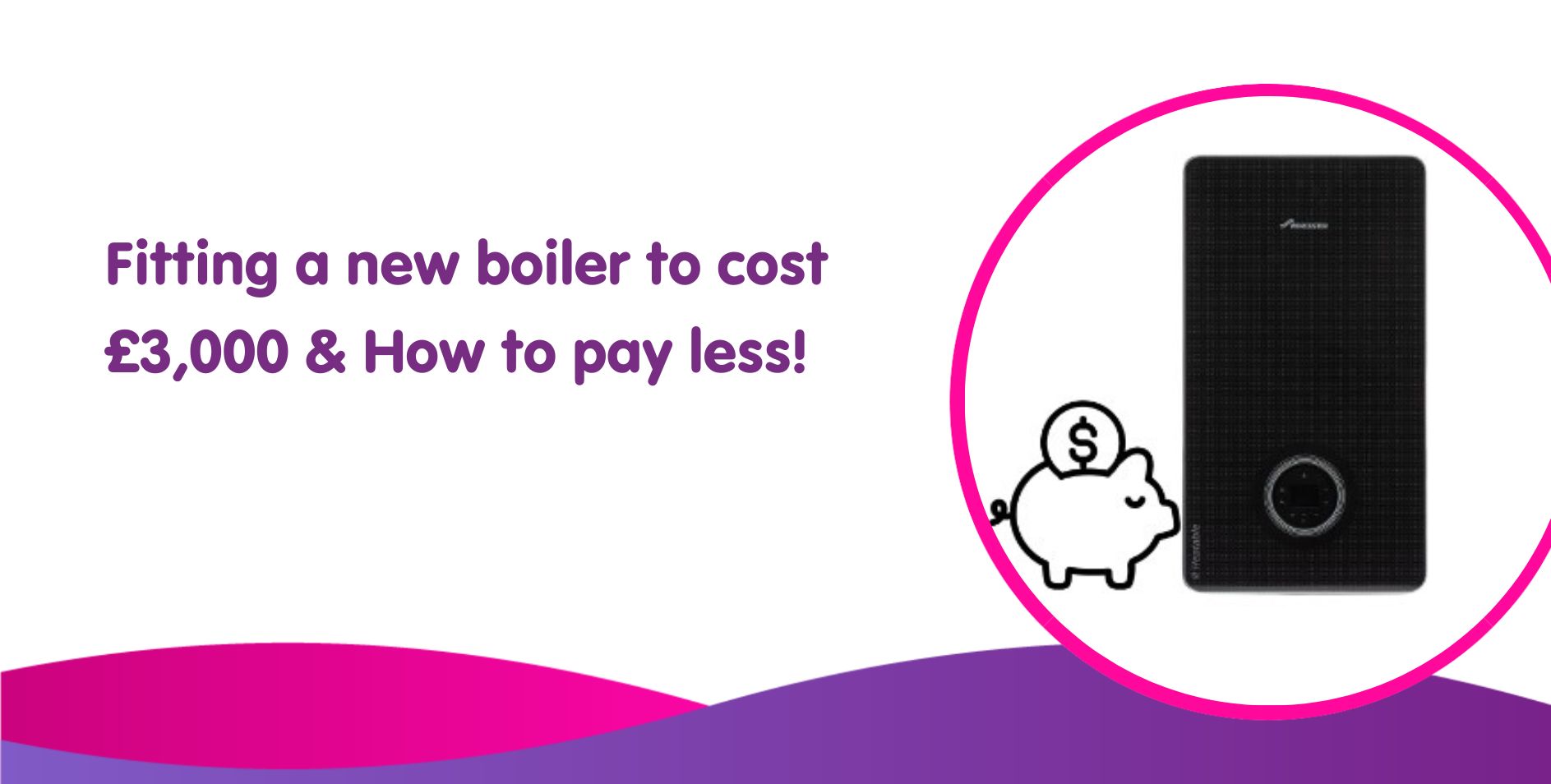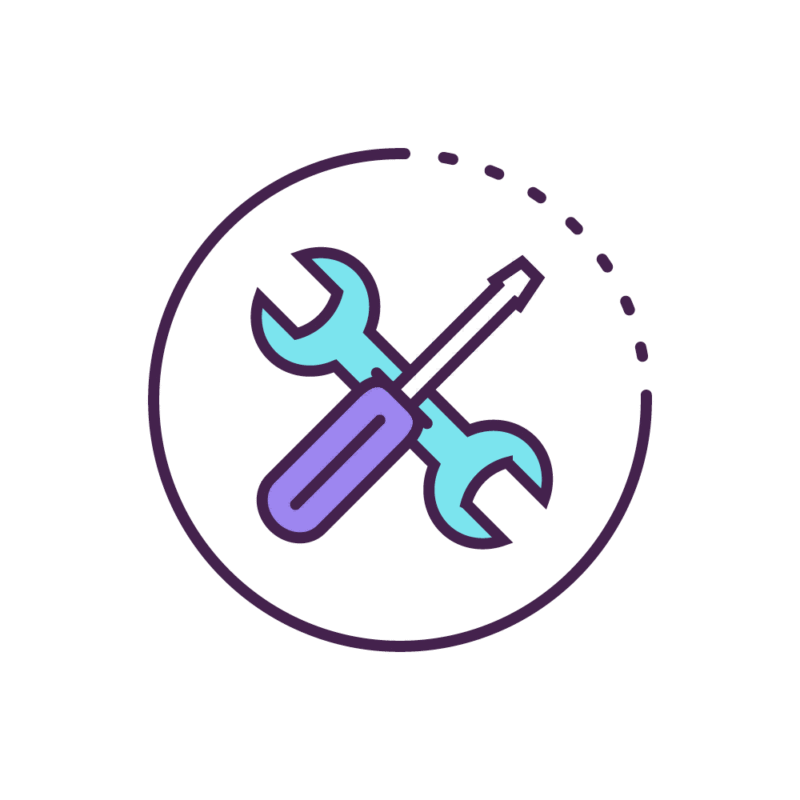Fitting a new boiler to cost £3,000 in 2025: How to pay less!


New boilers are gradually costing more money and have seen a significant increase over the past couple of years, with an average rise of £500 from £2,000 to £2,500 from 2021 to 2022.
So far in 2025, we have seen average prices rise by £300 to a whopping £2,800, therefore the average boiler installation is expected to cost a staggering £3,000 this winter!
This surge in prices has caught the attention of homeowners and industry experts alike, leading to concerns about the affordability and accessibility of this essential home heating appliance.
At Boiler Central we feel like we need to help our customers and explore the factors contributing to the rise in boiler prices, the impact on homeowners, energy efficiency considerations, tips for choosing the right boiler, and the importance of maintenance and servicing.
Lock in a fixed price now and pay nothing for 12 months with our buy now pay later boiler options.
Get an online fixed price in 20 seconds:
Factors Contributing to the Rise in Boiler Prices
Over the past few years, we here at Boiler Central have had to negotiate a completely different landscape for boiler buying. Part of this has been the rapid rise in costs, and several factors have led to the upward trend in boiler prices.
Understanding these factors can provide insights into the challenges faced by both manufacturers and consumers in the current market.
Increased Raw Material Costs

Especially since COVID-19, one of the primary reasons behind the rise in boiler prices is the increased cost of raw materials to UK suppliers. The manufacturing process relies on various metals, including steel and copper, which have experienced price hikes in recent years.
Factors such as global demand, production constraints, and trade tariffs have contributed to the increased expenses involved in procuring these materials.
Supply Chain Disruptions
Supply chain disruptions have also played a significant role in the rise of boiler prices. The COVID-19 pandemic has caused disruptions in manufacturing operations, transportation, and logistics, leading to delays and increased costs.
Manufacturers have faced challenges in sourcing components and raw materials, resulting in higher production costs.
Get an online fixed price in 20 seconds:
High Demand and Limited Supply
Another factor driving the increase in boiler prices is the high demand coupled with limited supply. The demand for boilers has been on the rise due to various factors, including government incentives for energy-efficient appliances and the need to replace older, less efficient models.
new boiler manufacturers such as Worcester Bosch are struggling to keep up with this increased demand, resulting in a limited supply of boilers, which further pushes prices higher.
Inflation and Interest Rates
Inflation and interest rates have drastically affected costs to suppliers and installers alike. Engineers are having to charge more per hour, businesses are handing down the extra increase in energy prices via their products and interest rates have risen from 9.9% to up to 16.9%. This snowball effect is then passed on to you the customer, unfortunately.
Get an online fixed price in 20 seconds:
How to prevent paying for a boiler at all?
Often prevention is better than cure and in this case, looking after your boiler may be the best option. Getting an annual boiler service can delay the buying process for a good few more years yet.

If you think your boiler could be revived with a service then arrange for a Gas Safe registered heating engineer from Boiler Central to attend to your home and give it a good once over to keep it ticking over nicely for the foreseeable future.
During this boiler service they can also advise you of ways to save money with regards to the flow temperatures and setting your thermostat correctly plus, let you know if you actually need to stump up and suffer the expense of a new boiler or not in the near future.
How Expensive Boilers are Impacting Homeowners
The rising prices of boilers have direct implications for homeowners, both in terms of upfront costs and long-term financial considerations.
Higher Upfront Costs
The immediate impact of increased boiler prices is felt by homeowners when purchasing a new boiler. The higher upfront costs can be a significant barrier, especially for those on a tight budget.
Homeowners may need to adjust their financial plans or explore financing options to cover the increased expenses associated with boiler replacement or installation.
Financial Implications

Beyond the initial investment, rising boiler prices also have financial implications in the long run. Energy bills constitute a substantial portion of household expenses, and having an energy-efficient boiler can help mitigate these costs.
However, with higher boiler prices, homeowners may find it challenging to invest in more efficient models, which could result in higher energy bills over time.
Get an online fixed price in 20 seconds:
Energy Efficiency Considerations
Despite the increasing prices, homeowners should consider the long-term cost savings associated with energy-efficient boilers. Energy efficiency not only helps reduce carbon emissions but also lowers energy bills, making it a financially viable option in the long run.
Long-Term Cost Savings
Energy-efficient boilers are designed to optimise energy usage, resulting in lower fuel consumption and reduced energy bills.
While new boiler upfront costs may be higher, long-term cost savings can offset this initial investment. Homeowners should consider the potential savings in energy bills over the lifespan of the boiler when making their purchasing decision.
Government Incentives
To encourage homeowners to invest in energy-efficient appliances, many governments offer incentives and rebates. These programs aim to make energy-efficient boilers more affordable and accessible.
Homeowners should explore such incentives provided by local authorities or energy companies to reduce the financial burden associated with purchasing a new boiler.
Get an online fixed price in 20 seconds:
What can I do to beat the price increases?
To beat the inevitable price increase there are a few options available to you:
- Buy now pay later – Lock in your fixed price now and don’t pay a penny for 12 months
- Standard boiler finance – Up to 3 years interest free or low APR up to 10 years available.
- Boiler subscriptions – Pay monthly for your boiler and service plan.
The best thing to do right now is to get a fixed price boiler quote online to beat any imminent increases, as well as the long term inevitable price increases.
Choosing the Right Boiler
When it comes to selecting a boiler, there are several factors to consider to ensure you make the right choice for your home and budget.
Types of Boilers
There are various types of boilers available, including combi boilers, system boilers, and regular boilers. Each type has its own advantages and is suitable for different household setups. Understanding the differences and consulting with a heating professional can help you determine the most suitable type for your specific requirements.
Size and Capacity Requirements
Boilers come in different sizes and capacities, and nothing is more important than being able to choose one that can adequately meet your heating and hot water demands.
Factors such as the size of your property, number of bathrooms, and household occupancy should be taken into account to ensure you choose a boiler with the appropriate capacity.
Get an online fixed price in 20 seconds:
Energy Efficiency Ratings
Energy efficiency ratings, such as the ErP (Energy-related Products) rating, provide valuable information about a boiler’s energy efficiency. Higher ratings indicate better efficiency and potential cost savings. When selecting a boiler, consider models with higher energy efficiency ratings to minimize your environmental impact and reduce long-term energy costs.
Maintenance and Servicing
Once you have installed a boiler, proper maintenance and regular servicing are essential to ensure its longevity and efficient operation.
Importance of Regular Maintenance
Regular maintenance is imperative to keep your boiler running smoothly and efficiently as well as maintaining your manufacturer’s warranty.
Scheduled maintenance helps identify and address any potential issues before they escalate, ensuring optimal performance and reducing the risk of breakdowns. It’s recommended to have your boiler serviced annually by a qualified engineer to maintain its warranty and ensure safety.
Finding a Reliable Gas Safe Engineer
When it comes to boiler maintenance and servicing, it’s essential to find a qualified and reliable engineer.
Look for engineers who are registered with recognised trade bodies and have experience working with your specific boiler brand. Reading customer reviews and seeking recommendations can also help you find a reputable engineer who will provide quality service.
So, let’s roundup
The rise in boiler prices since 2021 has presented challenges for homeowners. Factors such as increased raw material costs, supply chain disruptions, and high demand have contributed to this price surge.
However, here at Boiler Central, we know homeowners should consider the long-term benefits of energy-efficient boilers, such as cost savings and potential government incentives. When choosing a boiler, factors like type, size, and energy efficiency ratings should be considered. Additionally, proper maintenance and servicing are vital to ensure optimal performance and longevity.
FAQs
Are all boilers affected by the price rise?
Yes, the price rise has impacted boilers across various types and brands. One of the most affected was Worcester bosch which had to change what materials they used in their boilers as well as stop making certain boilers.
Can I still find affordable boilers despite the price increase?
While prices have risen on average, there are still options available at different price points. Researching and comparing different models can help you find an affordable option. Boilers such as the Alpha E-tec are a great option with a long warranty of 10 years for your peace of mind.
How much can I save with an energy-efficient boiler?
The amount you can save will depend on various factors, including your current boiler’s efficiency and your energy usage. However, if you have an old boiler such as a back boiler or conventional boiler then. it could be running at just 70% efficiency. Compare this to new gas condensing boilers that run at over 94% efficiency!


